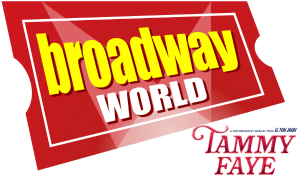BWW Reviews: Barry Manilow's HARMONY Finally Gets a Deserved Staging at the Ahmanson
Harmony/book & lyrics by Bruce Sussman/music by Barry Manilow/directed by Tony Speciale/Ahmanson Theatre/through April 13
The big question surrounding the fate of Harmony: Is Broadway ready for another musical about the turbulent 30s and Nazi occupation of Germany? With The Sound of Music, Fiddler on the Roof (although set in Russia and at an earlier time, it's still about the plight of the Jews) and Cabaret firmly planted in our minds as three of the greatest musicals ever written about these themes, do we need one more? Barry Manilow has been trying desperately for over 10 years to get his Harmony, based on the true story about the Comedian Harmonists, onstage. Now at the Ahmanson through April 13, Harmony is beautifully produced and mounted, exceedingly well-performed and a thoroughly moving story about 6 singers/performers whose careers and lives were interrupted and controlled by Naziism. The answer to the big question is a shaky maybe.
As this is a new show, before I go any further with comments, let's expand upon the plot. It is about a real life singing group who joined together in 1927 Berlin as first the Melody Makers, then the Harmony Boys while they rehearsed in train stations and sang literally on street corners and in alleys. There came an initial break at the Cinderella Club, and they gradually became known as the Harmonists and later, due to their finely honed physical antics, that changed to the Comedian Harmonists, which remained their official name until their demise in 1935 with the rise of Hitler and his new laws denouncing Jews. 3 of the 6 were Jewish, putting the rest in peril. It is important to note that the group toured the world for an entire year and played Carnegie Hall in 1933 before eventually going their separate ways. All died except one who lived in California until 1998. More on that later!
If we analyze what Harmony has to offer in terms of fitting into the category of a good musical play, it has some fine splashy tunes, with a trace of familiar sounding Manilow glow in at least one number "Stars in the Night", terrific choreography from JoAnn M. Hunter, two love stories at the core and an overall passionate story about 'doing what you love to do best... at all costs'. There's much positive energy within the ensemble and creative team, a love of producing the arts in turbulent times - the theme reflected in the storytelling. A positive note as well about Manilow's music are its consistently discordant sounds that seem to be a perfect match for the discord in the story. And of course, the chemistry between the 6 actors/singers/dancers is most likely the best reason to keep watching. So what is missing?
I heard comments opening night about the music not forwarding the plotline, but being a showcase for its own merit. I did not find this to be the case, maybe with one or two numbers but not throughout. And of course, there's always that pretentious viewpoint about how can we expect a popular singer/songwriter like Barry Manilow to construct a proper Broadway show? After all, his material, like Copacabana, is pure entertainment, meant for the airwaves and acceptable TV fare...nothing more. I do not accept this eletist attitude either. For me, the story is as engrossing and riveting as any good Broadway show should be with some wonderfully original music which fits nicely with the book...and the love stories really send home the message about survival; as in life, there's failure as well as success. The story between liberal agitator Ruth (Hannah Corneau) and Erwin "Chopin" Bootz (Will Taylor) is a sad one, doomed from the start due primarily to her unsettled nature. The strength of the bond between Mary (Leigh Ann Larkin) and "Rabbi" Josef Roman Cykowski (Shayne Kennon) is everlasting, as both actually survived, with "Rabbi" being the sole survivor of the group, as I mentioned earlier, living in Palm Springs until 1998. The support that Mary gives him is the magic that makes for a perfect marriage, and it did work, at least for them. Another heartwarming aspect of the story for me is the group's return to Germany at the end of Act I ("Home")- even when they are uncertain of the fate of their homeland...and the meeting on the train in Act II of the group with the Fuhrer. "Rabbi" regrets not standing up ("Threnody") to impossible odds, but despite their separation and eventual demise, they did struggle to keep their music alive and to "make the dream greater than the night".
The answer to my second question is nothing; there is nothing missing in this musical, for me. Maybe some minor adjustments can me made in the progression of the book; maybe the opening number could be shortened, as "Harmony" did seem to go on for too long a spell. My main concern is that many critics and people in general will try to measure it against the aforementioned great musicals that have dealt with these themes, instead of appreciating it for its own merits.
As far as the ensemble goes...remarkable ...all. Matt Bailey as stalwart Harry, Will Blum - so dextrous and funny as Lesh - Chris Dwan as Erich, Douglas Williams as Bobby, and the previously mentioned Kennon as "Rabbi" and Taylor as "Chopin", as well as ladies Corneau as Ruth and particularly Larkin as Mary - such a gorgeous singing voice - all 19 make invaluable contributions. Director Tony Speciale maintains great pacing throughout, and his staging is impeccable, as is JoAnn M. Hunter's rhythmic choreography. Loved the puppetry of "Come to the Fatherland!" Tobin Ost's sets and costumes along with Darrel Maloney's projection designs are rivetingly effective. Go and see for yourselves through April 13!
http://www.centertheatregroup.org/
Comments
Videos
